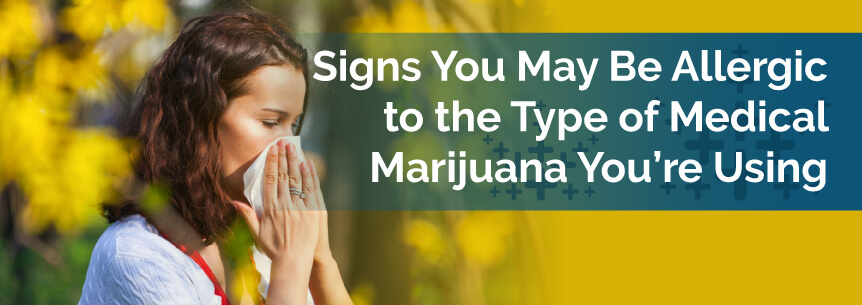Medical marijuana is available as Sativa or Indica — two different strains of marijuana that contain varying levels of THC and cannabidiol (CBD). Popular hybrid strains containing Sativa and Indica are widely used by medical marijuana patients seeking comprehensive therapeutic relief not provided by consuming Sativa or Indica separately.
Fairly high in THC but low in CBD (the constituent responsible for providing medicinal benefits), Sativa marijuana is said to impact a person’s cognitive state rather than their body by stimulating mood, focus, and thought processes. Sativa strains may be recommended for those with cancer, major depression, migraines, and AIDS to increase appetite and reduce nausea.
High in both CBD and THC, Indica strains tend to help people with chronic pain, muscle spasticity, uncontrollable tremors/shaking, and joint stiffness characteristic of Parkinson’s disease, multiple sclerosis, or rheumatoid arthritis. It also offers stronger relaxant properties because of its elevated CBD and THC levels.
Although researchers aren’t entirely sure why some people suffer classic allergy symptoms from cannabis, they do know what causes the nasal passage inflammation, itchy eyes, congestion, sneezing, and wheezing indicative of an airborne allergy — cannabis pollen and/or cannabis smoke. More severe allergies to cannabis pollen may even induce hives, rashes, and minor throat swelling.
In addition, people who may be allergic to one of the over 400 chemicals found in marijuana could experience allergy symptoms after consuming cannabis products.
Increasing Reports of Sativa Cannabis Allergies
According to a recent academic review article, both passive and allergic reactions to Sativa appear to be affecting more medical marijuana users. In fact, hypersensitivity to marijuana allergens may result in various cross-allergies to plant foods. This clinical cross-allergy disorder has been deemed the “cannabis fruit/vegetable syndrome,” and appears to be attributed to certain proteins present in Sativa cannabis.
One reason why cannabis allergies are being reported more often is simply because of the progressive prevalence of medical marijuana, as well as the legalization and decriminalization of marijuana in more than 30 states. Most medical marijuana patients have never used cannabis before and will more readily report allergy symptoms to their doctor because they’re unfamiliar with the possible side effects.
Diagnosing an Allergy to Marijuana
Determining a cannabis allergy largely depends on skin testing procedures. Extracts created from leaves, flowers, and crushed buds of the marijuana type suspected of causing allergy symptoms are placed in contact with the skin. Positive reactions to extracts include reddening of the skin, itchiness, skin breakouts (rash, hives), and swelling. Some people develop allergic reactions within hours of being exposed to skin test patches, while others may not present a reaction for several days.
Many people allergic to cannabis also have other plant allergies. However, this correlation does not explain why some individuals seem to be allergic to female cannabis plants that are not hermaphroditic. In these cases, some other allergens besides cannabis pollen or proteins exclusive to Sativa or Indica are to blame for causing allergy symptoms.
Because the immune system reacts negatively to proteins, it releases immunoglobulin — an antibody meant to attack what it thinks is a foreign entity. Histamine is also released simultaneously, which may cause adverse stomach problems in some medicinal marijuana users, such as vomiting and diarrhea.
However, stomach cramping may be the only gastrointestinal symptom when an allergic reaction is mild. In some cases, the interior of the mouth and throat can break out in hives and swell, causing difficulty with swallowing and breathing.
Treating an Allergy to Marijuana
Allergies are the result of the immune system exhibiting an abnormal reaction to substances that are usually harmless to properly functioning immune systems. Itchy eyes, congested sinuses, hives, coughing, and wheezing emerge when the immune system attempts to “protect” the body by quickly manufacturing IgE antibodies in reaction to the allergen.
IgE antibodies discharge chemicals into the blood that are composed of histamines, which are the true instigators of an allergic reaction.
When medical marijuana users are allergic to a type of cannabis that works well to improve their health, they may find relief by taking antihistamines prescribed by their doctor that do not interact unfavorably with their medical cannabis. Some natural anti-allergy methods may also reduce allergy symptoms, such as vitamin C.
Also known as “Ester C,” vitamin C is an antioxidant that inhibits damage by free radicals, reduces the risk of disease and inflammation, and plays a vital role at nearly every stage of immune functioning. Vitamin C seems to help cells produce energy, find infections, and chemically stimulate other parts of the immune system to provide a more potent response. Supplementing with vitamin C may reduce the intensity of cannabis allergy symptoms by reinforcing immune system functioning.
A flavonoid derived from plants, quercetin is found in vegetables, fruits, and grains. In research studies, quercetin increases the strength of mast cell membranes, which inhibits the release of histamine during an allergic reaction. Because flavonoids are antioxidants, quercetin is a free radical scavenger that additionally prevents general cell death and DNA damage from internal and environmental stress.
Learn More Today
Unless they’re severe, marijuana allergies can be treated with antihistamines, or the prescribing doctor may experiment with different strains of cannabis until a patient is satisfied with the results. In some cases, medical cannabis patients may find their allergy symptoms diminishing after using cannabis for a while.
Research into “outgrowing” allergies indicates that a person’s immune system may become accustomed to the presence of the allergen and adjust naturally by reducing its sensitivity to cannabis proteins.
If you’d like more information about medicinal marijuana allergies, or if you’d prefer to speak to a physician, find a doctor near you today.





